Look, we’re not going to lie: having the seat you want on the plane, train, or public transport is great while traveling. But even if you don’t get what you ideally want, you’ll still eventually arrive where you’re going. Generally speaking, some passengers tend to fight over the window seat for that awesome view. In some rare cases, though, it’s quite the opposite.
Internet user u/bald_head_scallywag regaled the r/delta online group with a rather strange yet wholesome story. According to the poster, their fellow passenger, a claustrophobic elderly woman, insisted that they take $100 so that she could switch her window seat for the aisle one. Scroll down for the full story and to see what the internet thought of the unusual situation.
The author of the story, u/bald_head_scallywag, was kind enough to answer our questions about what happened on the flight. You’ll find Bored Panda’s full interview with them below.
Some people have a harder time flying than others. For example, they might have a phobia
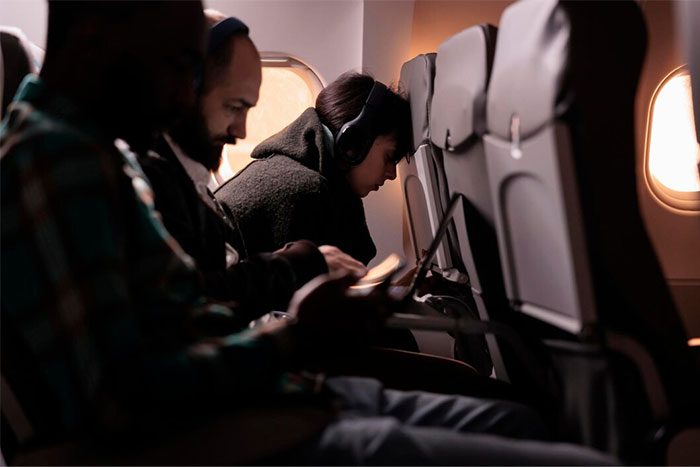
Image credits: freepik (not the actual photo)
A plane passenger shared how a claustrophobic elderly woman wanted to pay to switch seats so she’d be near the aisle
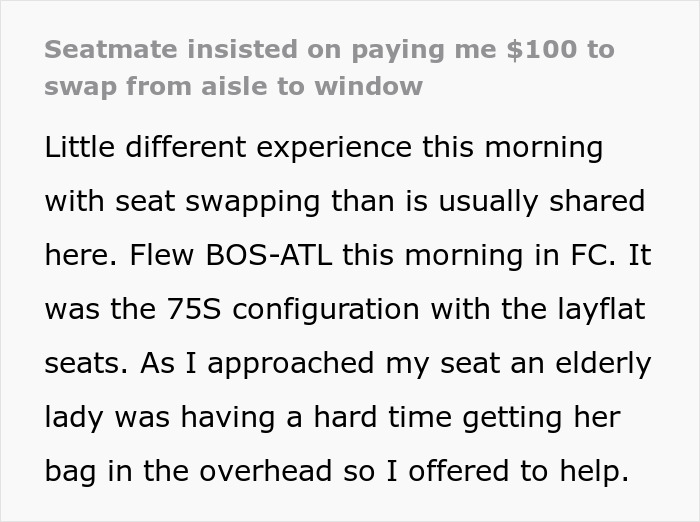
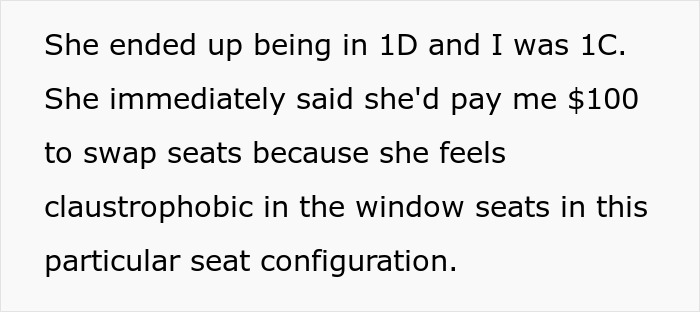

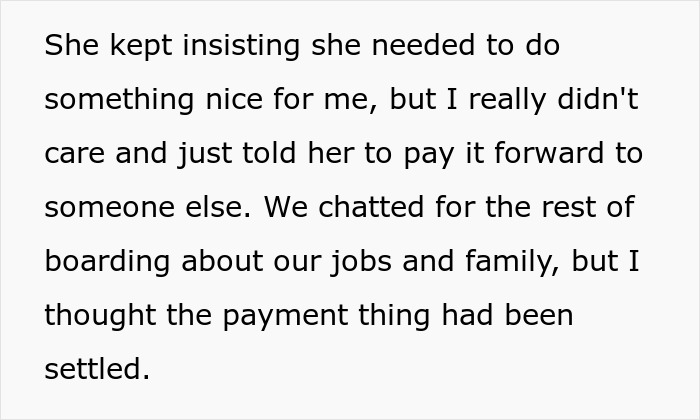
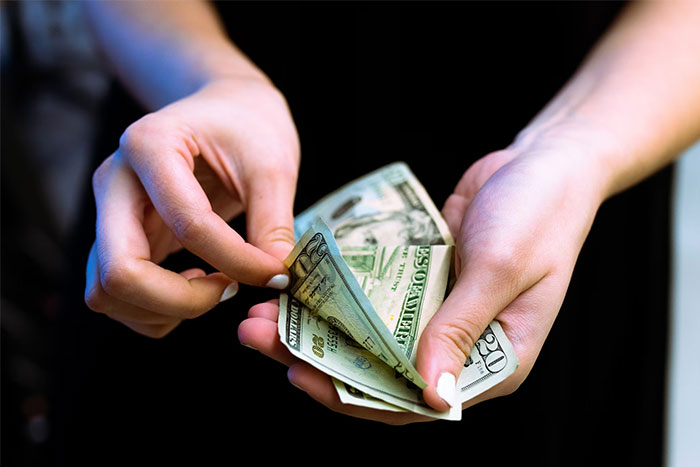
Image credits: unsplash (not the actual photo)




Image credits: bald_head_scallywag
“I did very much appreciate her offer to pay to show her appreciation for my decision to switch”
We were curious to hear what the author’s first reaction was upon hearing that their fellow passenger wanted to swap seats in exchange for money. “In all honestly, I wasn’t thrilled about it because I like being able to get up without disturbing anyone, but she just seemed like such a kind person so I decided to do it,” u/bald_head_scallywag told Bored Panda.
“There wasn’t a lot of back and forth about it though, I pretty much told her I’d switch immediately and that payment wasn’t necessary,” the author added.
“I did very much appreciate her offer to pay to show her appreciation for my decision to switch, but I considered the seats to be pretty equal.”
According to u/bald_head_scallywag, they fly quite often, but this sort of situation was new to them.
“I typically fly 1-3 round-trips per month, but I haven’t really had to deal with seat swapping and seat stealing too much. I think the best approach is for people to stay in their assigned seat until they can discuss it with their fellow passengers,” they told Bored Panda.
“Sitting down in the wrong seat and making yourself comfortable under the assumption that someone will switch is bad form. The person asking should also approach the situation knowing they may be told no and that it’s ok. If you’re asking someone to switch to a worse seat you also need to be prepared to sweeten the pot somehow.”
Being communicative and polite in situations where seat-swapping is involved can help you avoid a lot of trouble
Very often, when you hear about someone wanting a particular seat on a plane or public transport, you expect drama, entitlement, and frustration. So, it’s refreshing to read about a situation where everyone communicates well and manages to work things out without getting the cabin crew involved.
Agreeing to switch seats with someone, having a friendly chat, rewarding someone when you don’t have to—these are all examples of empathy and altruism.
And we all have the ability to behave similarly no matter who we are, what we do, or where we live.
Kindness is very much a skill that we can all develop, but it takes practice. Naturally, traveling long distances can be very stressful and tiring.
How we treat others when we’re feeling out of sorts says a lot about us and our priorities. Finding the grace to be polite even when you might be exhausted speaks volumes about your willingness to engage with other people and consider their needs, not just your own.
What makes u/bald_head_scallywag’s story particularly wholesome for us is the author’s refusal to take the woman’s money at first, as well as taking into account that the elderly passenger feels claustrophobic sitting next to the window seat.
People suffering from claustrophobia can feel very anxious when they get on planes, enter tunnels, go into lifts, and elsewhere
Claustrophobia—like any other phobia—is no joke. All of us have something that we’re afraid of. We wouldn’t be human if we didn’t! But some fears are more impractical and affect your daily life than others.
For instance, if you have claustrophobia (the irrational fear of confined spaces) or agoraphobia (the intense fear of becoming overwhelmed or unable to escape or get help), you may have a very hard time using public transportation when it gets particularly crowded.
Similarly, if you have thalassophobia (the fear of deep bodies of water), you’ll find it difficult to get on a boat, ferry, or raft. And if you suffer from aerophobia, flying on an airplane is going to be a particularly tough challenge.
With regards specifically to claustrophobia, this fear can be triggered by many different situations (e.g., being on a plane, car, the metro, being in tunnels, lifts, public restrooms, and in rooms that have to be locked or have sealed windows). However, you can also experience the phobia just thinking about these situations.
The NHS explains that adults may develop claustrophobia if they were ever trapped or kept in a confined space, were the victims of bullying or worse, or had a parent with claustrophobia. In the latter case, parents can pass their fears on to their children even if they themselves were never in situations that would naturally give rise to those phobias.
Aside from anxiety, claustrophobia can lead to sweating, trembling, chills or flushing, shortness of breath, the sensation of choking, and a rapid heartbeat. Those suffering from claustrophobia can also feel a tightness in their chest, as well as feel dizzy, sick, disoriented, and as though they might faint.
Many people also suffer from aerophobia, the fear of flying
This is all incredibly stressful! Most people would probably be willing to switch seats with someone just to help them avoid these symptoms. However, it’s not just claustrophobia that can rear its ugly head on planes. The fear of flying, which is known as aerophobia, or aviophobia, affects over 25 million adults in the United States alone.
“Almost every person has had some thought of, ‘Oh, my plane is delayed. I hope everything’s safe and fine.’ Some people have a tendency to have a thought become what’s called sticky or obsessive. They don’t like the thought, but it sticks in their mind, and they can’t really get it out. This kind of event is a typical trigger for people to have some increase in anxiety about flying or a true aerophobia,” Dr. Gail Saltz, clinical associate professor of psychiatry at Weill Cornell Medical College in New York City, explained to CNN.
According to Dr. Saltz, phobias are common mental conditions and are very treatable. “The treatment is exposure and response prevention—you have to expose yourself in some way to that feared situation and prevent your usual responses, which only make the phobia worse. That’s (done) by having a therapist guide you through and teach you all these relaxation and therapeutic techniques to manage your anxiety as it comes. Over time, you essentially become desensitized to those triggers. Virtual reality treatment guided by a therapist can also help,” she said.
Though it depends on each individual, some people suffering from the fear of flying can get better in 8 to 10 weekly sessions with their therapist. Of course, some might show progress sooner, while others are more resistant to recovery.
“It’s hard—if you’ve got a phobia and you think the most terrorizing thing that could possibly happen to you is to be exposed to this thing which makes you terrified, then you have to have a certain amount of faith and trust in the system and belief that this (treatment) can help you,” Dr. Saltz said.
Have you ever asked someone to switch seats on the plane, dear Pandas? On the other hand, has anyone ever begged you to trade seats with them? How did you respond to their request? Do you have any phobias that make it harder to travel somewhere? If so, how do you cope with those fears in your day-to-day life? Let us know in the comments!
Many people were surprised to hear what happened. Here’s what they thought about the peculiar situation






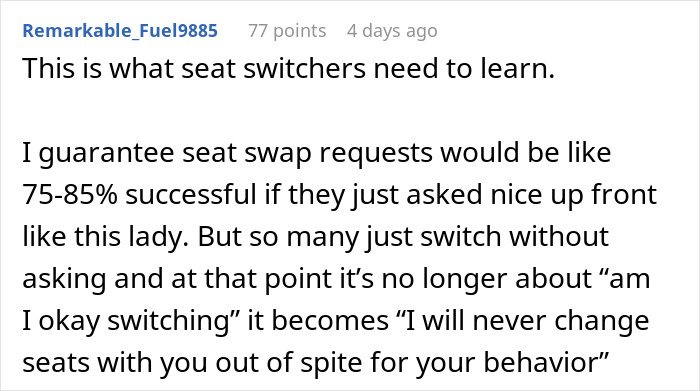











A small handful of internet users were less than friendly in the comments

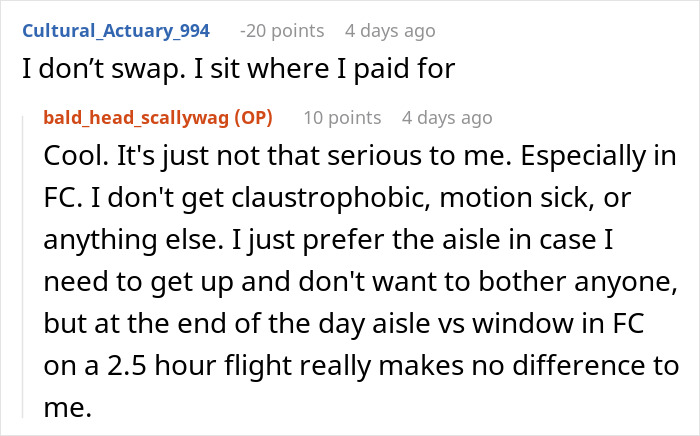
The post Elderly Woman Insists Seat Mate Takes $100 To Switch With Her: “Relented And Took Her Money” first appeared on Bored Panda.
from Bored Panda https://ift.tt/qwMdxp3
via IFTTT source site : boredpanda